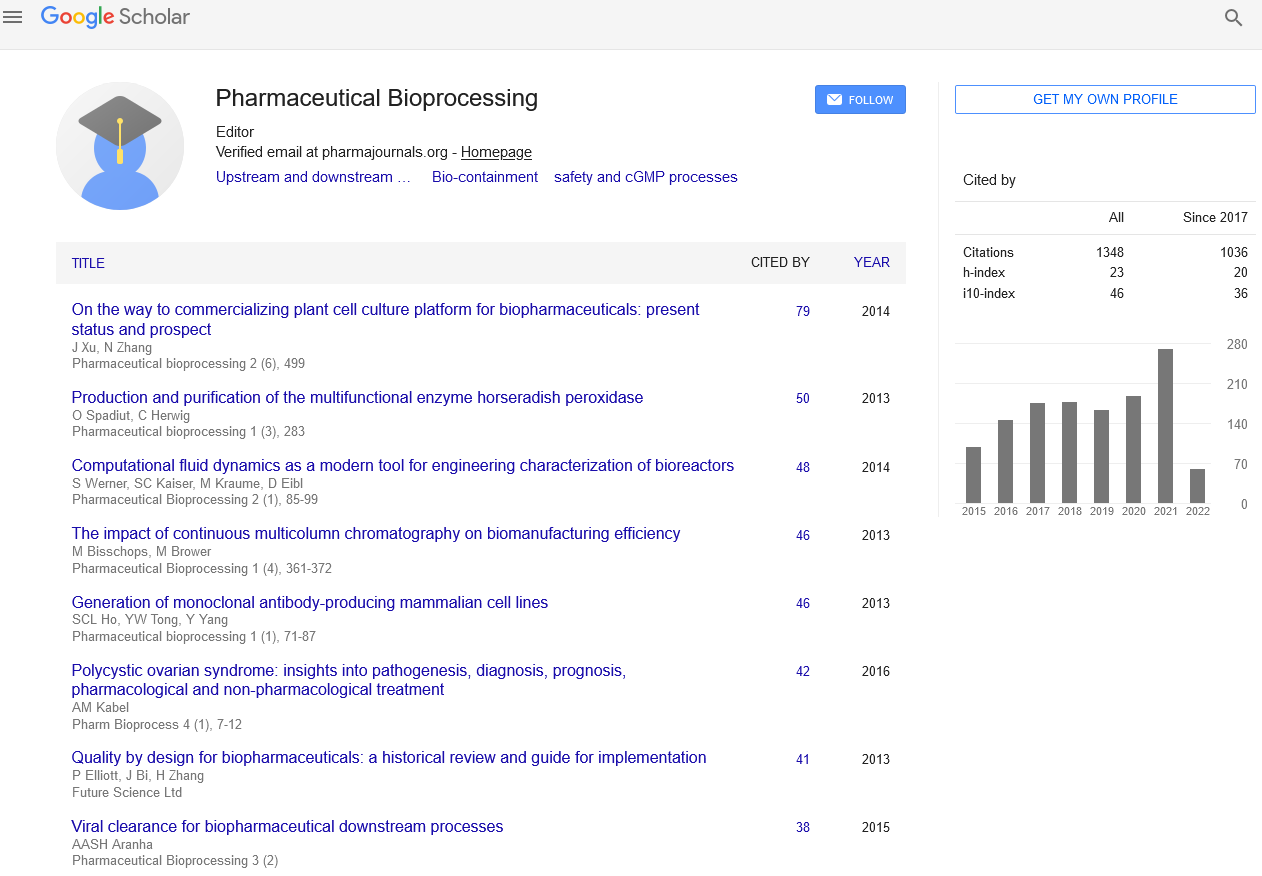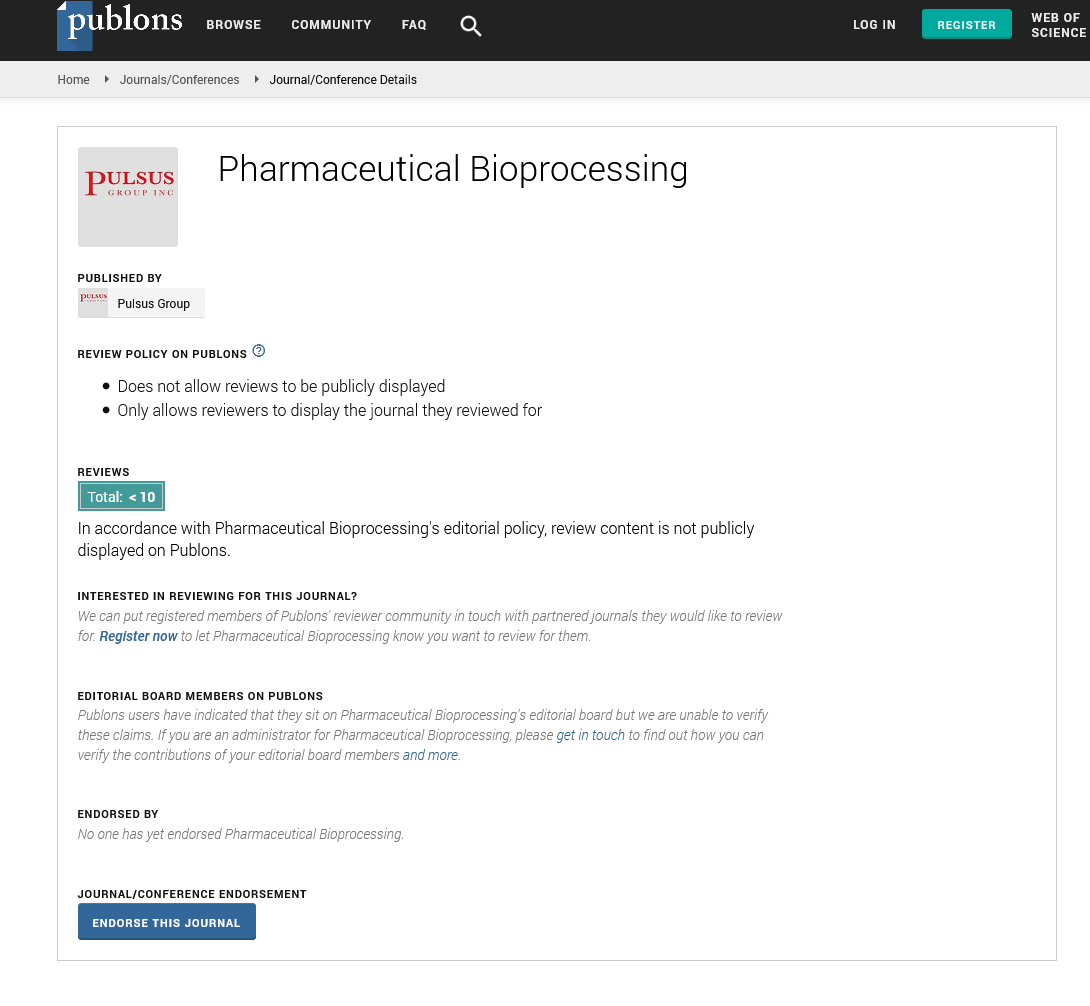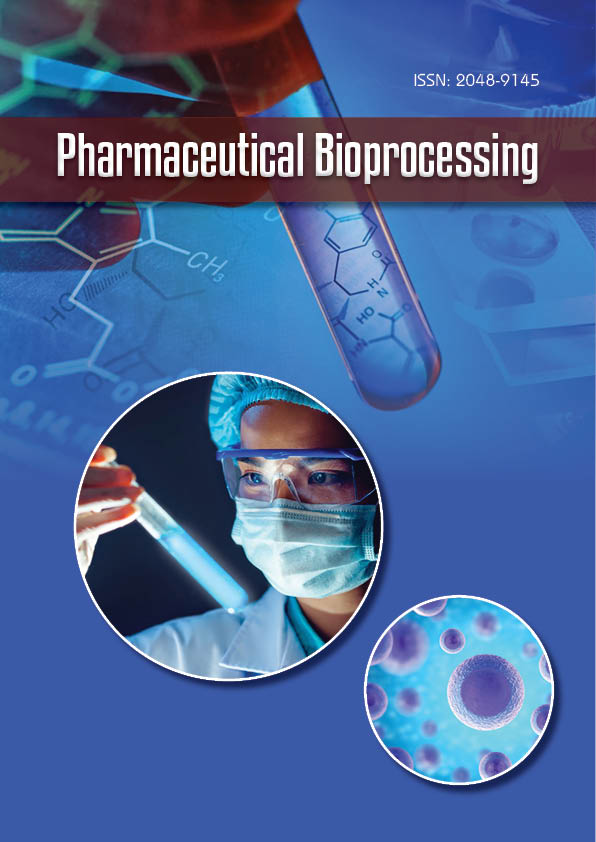Mini Review - Pharmaceutical Bioprocessing (2023) Volume 11, Issue 4
Pharmaceutical Ethics and Responsible Research: Balancing Benefits and Risks
David Gayer*
Department of Psychiatry, Dalhousie University, Halifax, Canada
Department of Psychiatry, Dalhousie University, Halifax, Canada
E-mail: david.gayer.89@gmail.com
Received: 30-Jun-2023, Manuscript No. FMBP-23-108029; Editor assigned: 03-Jul-2023, PreQC No. FMBP-23-108029 (PQ); Reviewed: 17-Jul-2023, QC No FMBP-23- 108029; Revised: 21-Jul-2023, Manuscript No. FMBP-23-108029 (R); Published: 28-Jul-2023, DOI: 10.37532/2048-9145.2023.11(4).68-70
Abstract
Pharmaceutical research, the ethical considerations surrounding the development of new drugs and therapies have become paramount. One critical aspect is striking the delicate balance between maximizing potential benefits for patients and minimizing potential risks. Pharmaceutical ethics demand rigorous adherence to responsible research practices that prioritize patient welfare, safety, and informed consent. Researchers must navigate complex challenges, including maintaining transparency in trial data, avoiding conflicts of interest, and ensuring unbiased reporting of results. The delicate interplay between pharmaceutical companies, healthcare providers, and regulatory bodies underscores the importance of maintaining high ethical standards throughout the drug development process. By upholding these principles, the pharmaceutical industry can foster trust among the public and medical community, ultimately leading to the advancement of safe and effective treatments that positively impact global health.
Keywords
Pharmaceutical research • Drug development • Global health • Pharmaceutical industry
Introduction
In the realm of pharmaceutical ethics and responsible research, striking a delicate balance between the potential benefits and inherent risks of medical advancements remains paramount. The pharmaceutical industry plays a pivotal role in developing life-saving drugs, innovative therapies, and improved treatment options for various ailments, thereby significantly enhancing the quality of life for countless individuals worldwide. However, this pursuit of progress must be underpinned by ethical considerations to safeguard human welfare and uphold integrity in scientific practices. One crucial aspect of responsible research involves conducting thorough and transparent clinical trials that adhere to stringent ethical guidelines and prioritize patient safety above all else. Ensuring informed consent from participants and protecting vulnerable populations from exploitation are non-negotiable imperatives. Additionally, researchers and pharmaceutical companies must remain vigilant in identifying and addressing any potential conflicts of interest, preventing undue influence on trial outcomes [1-3].
Moreover, the process of drug development necessitates rigorous testing, often involving animal experimentation. While this raises moral dilemmas, adhering to principles of responsible research entails minimizing animal suffering, adhering to strict regulations, and actively exploring alternative testing methods to reduce reliance on animal models. Furthermore, pharmaceutical companies must be mindful of the long-term effects and potential risks associated with their products. Comprehensive post-market surveillance is essential to detect and address adverse events that might not have been apparent during initial clinical trials. Swift and transparent communication of such information is vital to protect public health and maintain trust in the pharmaceutical industry. Ultimately, the pursuit of pharmaceutical advancements must prioritize the welfare of patients and public health. This involves fostering a culture of responsibility and ethics within the industry, promoting open dialogue among stakeholders, and collaborating with regulatory authorities to ensure that benefits outweigh risks throughout the drug development process. By striking this delicate balance, the pharmaceutical sector can continue to make meaningful contributions to healthcare while upholding the highest ethical standards [4,5].
Discussion
In the realm of pharmaceutical ethics and responsible research, one of the most crucial challenges is striking a delicate balance between the benefits and risks associated with drug development and testing. The pharmaceutical industry plays a pivotal role in advancing healthcare by introducing new treatments and medications that can alleviate suffering and improve the quality of life for countless individuals. However, this progress must not come at the expense of patient safety or ethical principles. Ethical considerations in pharmaceutical research encompass ensuring informed consent, protecting vulnerable populations, and maintaining transparency throughout the process. Responsible research involves rigorous testing to evaluate a drug’s efficacy and safety profile, adhering to stringent regulatory guidelines, and promptly reporting adverse events. Striking this equilibrium between promoting advancements in medicine and safeguarding patients’ well-being is of paramount importance to uphold public trust in the pharmaceutical industry and ensure the betterment of global health. Only by upholding these ethical standards can we foster an environment where patients can confidently reap the benefits of medical progress while minimizing potential risks [6-8].
In the field of pharmaceuticals, ethical considerations and responsible research play a critical role in ensuring the development and dissemination of safe and effective medications. The paramount challenge for pharmaceutical companies and researchers lies in striking the delicate balance between the potential benefits and inherent risks associated with their products. On one hand, innovative drugs hold the promise of revolutionizing healthcare, alleviating suffering, and saving lives. However, the pursuit of these advancements must be accompanied by rigorous scientific integrity and adherence to ethical principles to avoid compromising patient safety or exploiting vulnerable populations. Responsible research demands transparency, thorough clinical trials, and unbiased reporting of results to enable informed decision-making by healthcare providers and patients. Furthermore, ethical considerations extend beyond the laboratory, encompassing fair pricing, equitable access, and the responsible marketing of pharmaceutical products.
Navigating these complexities requires ongoing collaboration between stakeholders, including researchers, regulatory bodies, healthcare professionals, and patient advocacy groups, to ensure that pharmaceutical advancements are driven by an unwavering commitment to ethical practices and the greater good of public health. By upholding these values, the pharmaceutical industry can strengthen public trust, improve patient outcomes, and contribute positively to society’s well-being. In the realm of pharmaceutical ethics and responsible research, one of the most critical challenges faced by the medical and scientific community is striking a delicate balance [9,10].
Conclusion
The benefits and risks associated with drug development and testing pursuit of new medications and treatments holds immense potential for improving human health and saving lives. However, this noble objective must be approached with utmost caution and integrity, as the potential risks and side effects of experimental drugs can also pose significant harm to patients and society at large. Ethical considerations demand rigorous adherence to established protocols, informed consent, and comprehensive evaluation of the potential risks and benefits before conducting clinical trials on human subjects. Transparency in reporting results and data, even if they are unfavorable, is crucial to ensure that the medical community and patients have access to accurate information for making well-informed decisions. Responsible pharmaceutical research requires a collective commitment to prioritizing patient safety and welfare over commercial interests, avoiding conflicts of interest, and upholding the principles of integrity, respect, and empathy throughout the drug development process. By adhering to these ethical principles, researchers and pharmaceutical companies can navigate the complex landscape of medical advancements while safeguarding the well-being of patients and maintaining public trust in the pursuit of better health for all.
References
- Fogliardi R, Frumento E, Rincon D et al. Telecardiology: results and perspectives of an operative experience. J Telemed Telecare. 6, 62–4 (2000).
- Al–Badri A. Almuqbali J, Al–Rahbi K et al. A Study of the Paediatric Prescriptions at the Tertiary Care Hospital in Oman.J Pharmaceut Res.5, 17–56 (2020).
- Cullinan S, O’Mahony D, Fleming A et al. A meta–synthesis of potentially inappropriate prescribing in older patients.Drugs Aging.31, 631–638(2014).
- Barry E, Moriarty F, Boland F et al. The PIPc Study–application of indicators of potentially inappropriate prescribing in children (PIPc) to a national prescribing database in Ireland: A cross–sectional prevalence study.BMJ Open.8, 69–556 (2019).
- Hill–Taylor B, Walsh KA, Stewart S et al. Effectiveness of the STOPP/START (Screening Tool of Older Persons’ potentially inappropriate Prescriptions/Screening Tool to Alert doctors to the Right Treatment) criteria: Systematic review and meta–analysis of randomized controlled studies.J Clin Pharm Ther.41, 158–169 (2016).
- Sadozai L, Sable S, Le E Roux et al. International consensus validation of the POPI tool (Pediatrics: Omission of Prescriptions and Inappropriate prescriptions) to identify inappropriate prescribing in pediatrics.PLoS ONE.15, 47–72 (2018).
- Al–Maqbali, Haridass S, Hassali M et al. Analysis of Pediatric Outpatient Prescriptions in a Polyclinic of Oman. GlobJ Med Res.19, 2249–4618 (2019).
- Tommelein E, Mehuys E, Petrovic M et al. Potentially inappropriate prescribing in community–dwelling older people across Europe: A systematic literature review.Eur J Clin Pharmacol.71, 1415–1427.
- Crowe B, Hailey D. Cardiac picture archiving and communication systems and telecardiology – technologies awaiting adoption. J Telemed Telecare.8, 3–11(2002).
- Liew TM, Lee CS, Goh Shawn KL et al. Potentially Inappropriate Prescribing Among Older Persons: A Meta–Analysis of Observational Studies.Ann Fam Med.17, 257–266(2019).
Indexed at, Google Scholar, Crossref
Indexed at, Google Scholar, Crossref


